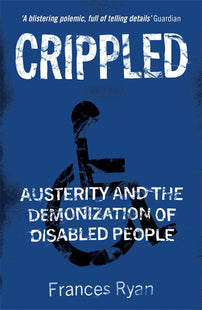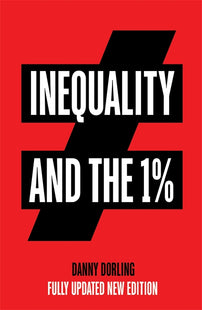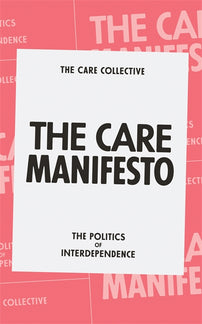The Dehumanisation of Autistic People Must End
Following the shocking case of Lacey Ellen Fletcher, Jodie Hare argues that the public perception of autism needs to be radically revised through a better understanding of neurodivergence.

Trigger warning for severe neglect, abuse, death, eugenics, and ableism.
In the first week of May, news broke about the death of 36-year-old Lacey Ellen Fletcher, one of the cruellest instances of neglect of an autistic person in recent years. (You may read about it here should you wish to). Lacey had not been seen by neighbours for more than a decade when she died, fused to her parents’ couch. Her parents have now been charged with second-degree murder.
Having been part of the autistic community for several years now, unfortunately this kind of news no longer shocks me, although it continues to horrify and anger me. I have grown accustomed to reading of autistic people who have been treated as less than human, who have been treated as though their life is not worth preserving. That such a case should occur more than forty years after the release of the documentary The Silent Minority – an investigation into the appalling neglect and abuse of disabled individuals in two hospitals in the U.K. – demonstrates precisely how little has changed for disabled people, how susceptible they remain to brutal abuse and dehumanisation, as well as experiencing the continued inaccessibility of the societies around them.
In the article reporting Lacey’s death, her neighbour reports that she ‘appeared to be a happy girl’ until her ‘autism accelerated when she was around 14’. It is important, first, to analyse this use of language. Autism does not accelerate (or decelerate for that matter). It is a developmental disability that remains constant throughout a person's life, although a their support needs may increase or decrease at any time.
What this anecdote suggests is that when Lacey began to experience personal difficulties, increased social anxiety and required a greater level of support, she was forced into isolation. Perhaps Lacey’s parents felt that having an autistic child was something to be ashamed of, or something to hide. Dr Devon Price reports on this label stigma in his latest book, Unmaking Autism: The Power of Embracing Our Neurodiversity, explaining that
‘Publicly identifying as disabled does mean being viewed as less competent—and less human—by many people. As damaging and self-defeating as it can be to camouflage one’s disability status, it is by no means a paranoid act. It’s a rational reflection of the prejudices disabled people face. It’s not unique to autism, either.’
That Lacey might have been denied any form of adequate care because her parents felt ashamed of her is ample evidence of the little value attached to autistic lives, her parents striving for their own personal dignity rather than affording any to Lacey.
The severe medical neglect and fatal abuse that Lacey endured reflects a wider dehumanisation that is firmly rooted in the history of autism. This starts with Hans Asperger, a founding figure in the study of autism, now understood as indisputably having ‘collaborated in the murder of children with disabilities under the Third Reich.’ At one of the clinics Aspergers referred children to, those ‘whom Nazi practitioners labelled “genetically inferior” were murdered, because they were seen as incapable of social conformity, or had physical or psychological conditions judged undesirable.’
[book-strip index="1" style="display"]This decision regarding which lives are worth saving can now be clearly seen as the crux of eugenics. In their refusal to treat Lacey with a modicum of care and respect, Lacey’s parents deemed her life as one not worthy of preservation. This inevitably led to the development of several illnesses which would eventually end her life.
Unfortunately, the casual dehumanisation that Lacey faced impacts autistic people all throughout society.
Recent research showing that autistic children are four times as likely to report child maltreatment, including physical abuse, and psychological or emotional abuse from adults. Moreover, as Dr Monique Botha reports, this dehumanisation is also present in autism research settings and that ‘Dehumanizing and/or stigmatizing research or narratives are both an act of violence against autistic people, but also facilitate the permissibility of more intimate violence such as interpersonal victimization.’ It’s highly likely that this overarching stigma and dehumanisation of autistic people—found both in general life and in the settings where our experiences are catalogued and debated—has contributed to a suicide rate that is three times as high as non-autistic people and the increased risk of mental health problems in the autistic population.
Much of this dehumanisation is likely to be motivated by a widespread understanding of autism as a disease worthy of eradication. A common misconception that has been shaped by societal understandings of ‘normal’ neurology and the dominance of the medical model of disability — a framework that presents disabled people as in need of fixing, completely disregarding the importance of creating an accessible world. The history of autism is embedded with d-words of this kind: disease, deficiency, disorder. How autistic people have been and continue to be treated is directly impacted by this language, by this viewing of us through the prism of wrongness.
Autism is not a disease. It is a neurotype that exists as the result of natural biological variation. Autistic people do not need to be fixed or broken down to fit into acceptable cultural norms, we do not deserve to be alienated or outcast or treated as lesser than. To put a real stop to the abhorrent treatment so much of our community has faced, it is likely that a shift to the social model of disability is required. It will also require autistic people to be viewed as valuable members of society — awarded the same respect, dignity, care, and compassion as others. Not, however, valuable because we have anything to offer (although we do!), but valuable because we are here, living alongside everybody else, inherently worthy in all our humanness.
Regardless of the world’s continued attempts, autistic people will not disappear – and we shouldn’t have to. However, if we are to have any hope of living full lives filled with joy, a radical shift in the understanding of and attitude towards autism and autistic people is absolutely paramount. Lacey did not deserve to live the last decade of her life on her couch neglected by those tasked with taking care of her, she deserved to have a network of others around her who would help maintain her quality of life and help her remain a part of a community, helping her access joy and love in the moments she needed it most.
[book-strip index="2" style="display"]


